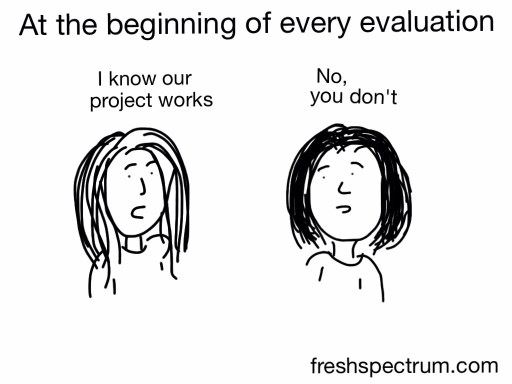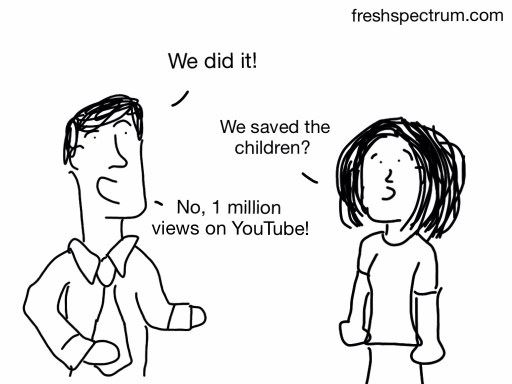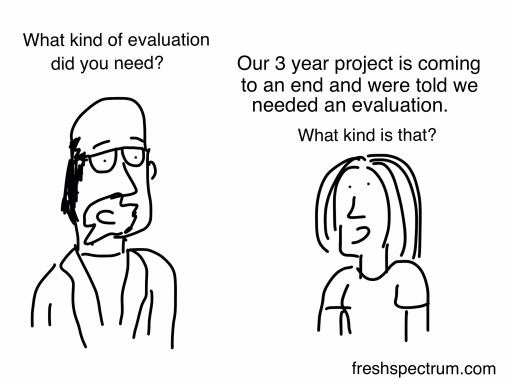Having Conversations with Stakeholders Unfamiliar with Evaluation
By Marion Cabanes
On April 4th, GBEN hosted a roundtable discussion with members to share their experiences talking with stakeholders unfamiliar with evaluation.
Members discussed cartoons from the well-known evaluation website, www.freshspectrum.com. Many of these cartoons portray situations where an evaluator experiences resistance to, or lack of understanding about, evaluation from a client, and how to go about changing the client’s perspective on the role of evaluation for a particular project.

When you implement your project activities every day for many years, one may think they know the nuts and bolts of a project and what the clients need. The reality, however, can be much different. For example:
- Evaluation tends to be overlooked, or project staff simply don’t see how evaluation can capture their successes or areas in need of improvement of the project. They might also lack time for evaluation as they focus on implementing their project activities, especially where their clients’ immediate livelihoods are at stake (i.e., locating beds for the homeless).
- Or, there is still a failure to understand how evaluation can showcase project activities and results. Without evaluation, you lose the utility of the data you’re routinely collecting to serve the purpose of reflecting on your project and learning from it. It then gets harder to show the “specialness” of your work.

When talking about the “specialness” of a project, make sure goals are explicit and you are able to explain how the project will succeed or is meeting goals. Never underestimate spending extra time developing an evaluation plan at the beginning of your project as this will help you stay on track and/or measure how far off you are from reaching the ‘real’ goal, la raison d’être, of your project.

Evaluation can oftentimes feel like just another administrative task to tick off at the end of a project’s life cycle. GBEN members offered up some great tips on how to frame the role of evaluation differently with clients:
- Stakeholders have an ethical responsibility to act, intervene, and assess that their efforts and investment are worthwhile.
- Evaluation is an opportunity to showcase how good a project is and communicate successes and learnings to project funders, stakeholders, and beneficiaries.
- Evaluation is an integral part of developing a strong culture of learning. Evaluation will help you and your team perform better and learn as you are solving problems along the way. Evaluation provides data to help make feedback-based informed decisions for corrective actions.
- It’s important to scope your evaluation appropriately by choosing wisely what’s important (and not important) to evaluate. What is the right level of evidence that shows whether or not your project is working as designed and intended?
A Cool Resource to help project staff measure project progress and performance and demonstrate results to the world is a “results scorecard” software like Clear Impact and its Scorecard software or Asana.
Click here to access the presentation from the roundtable (members only!).
- Marion Cabanes is a local Boston evaluation specialist working in international development as well as an active member of GBEN.